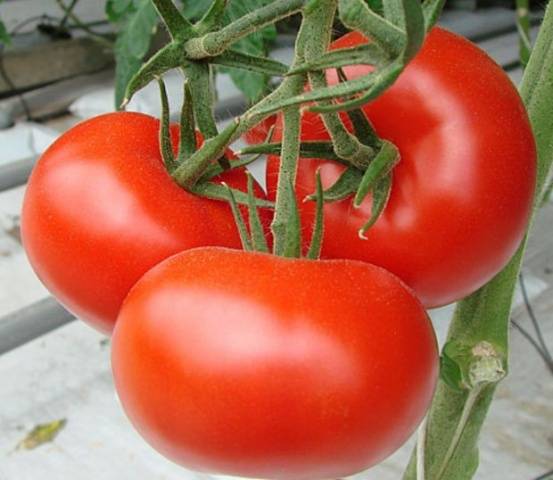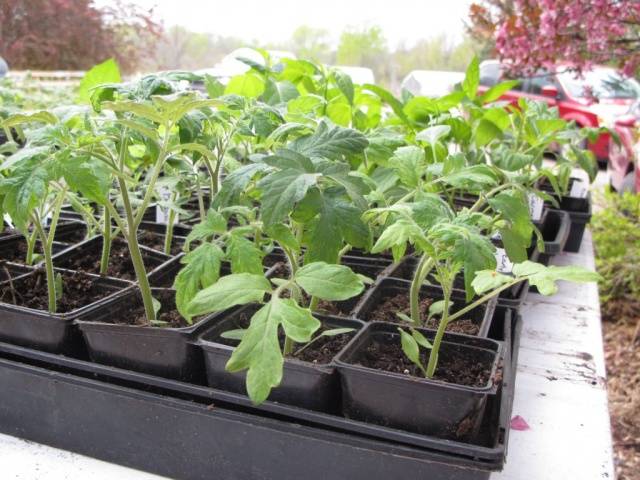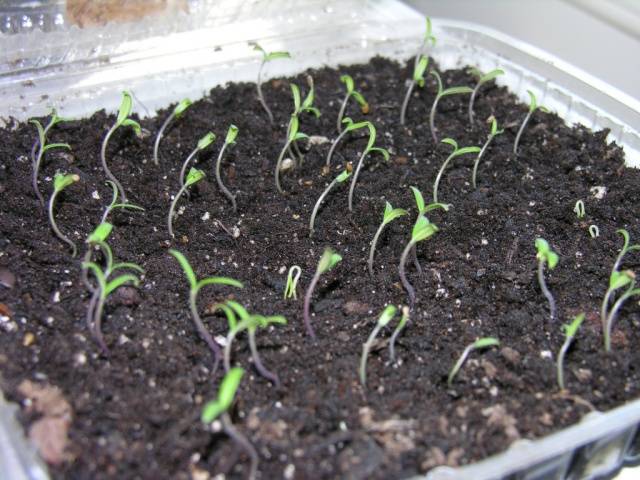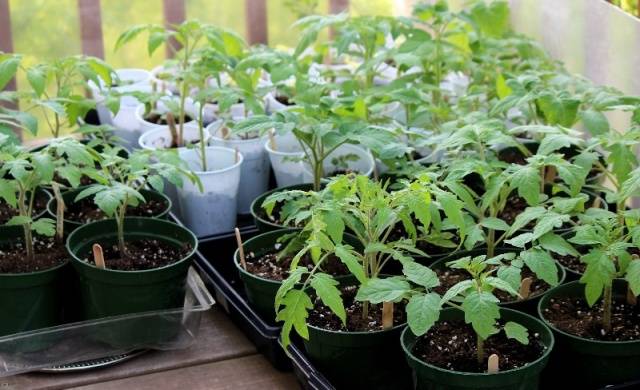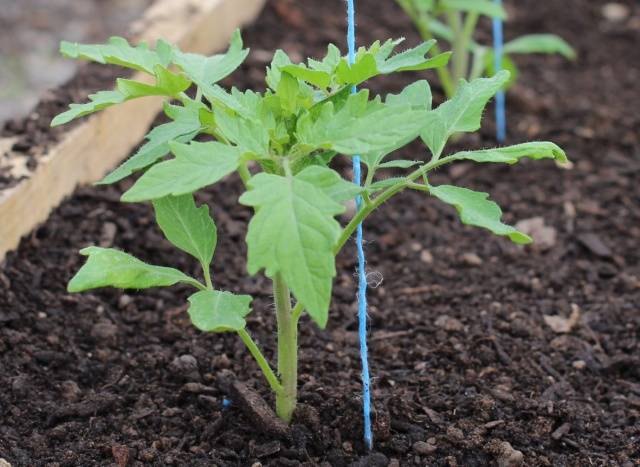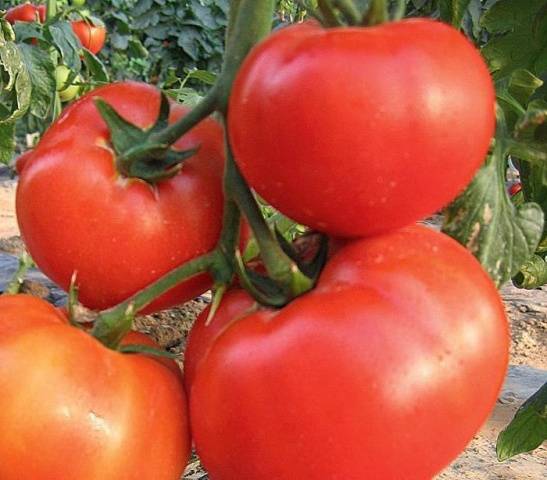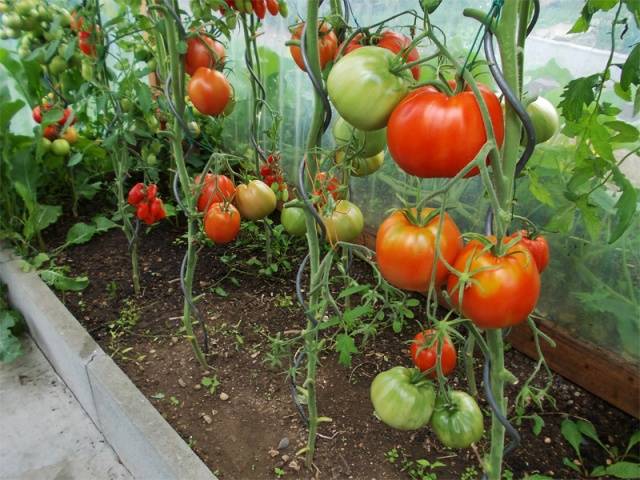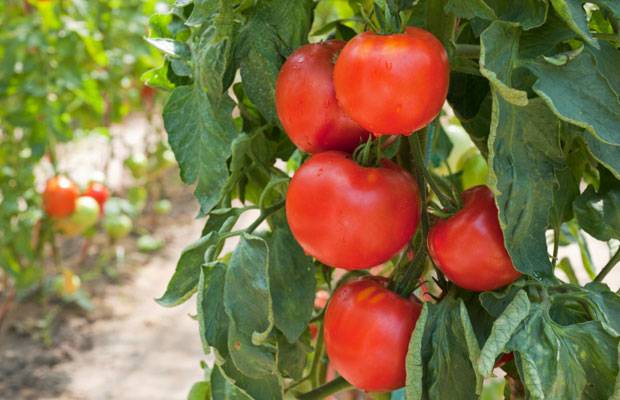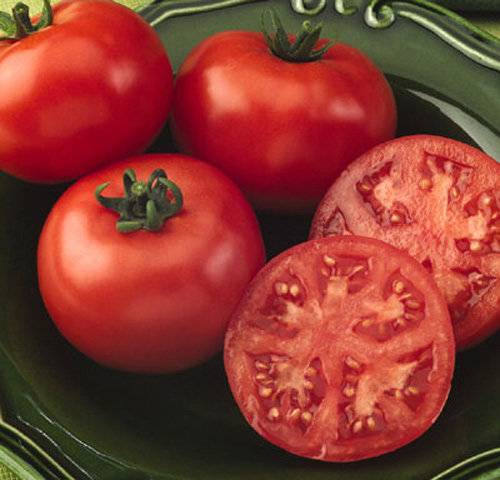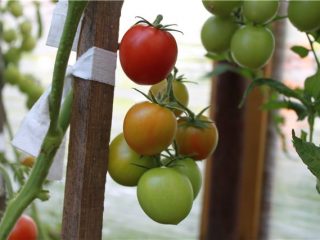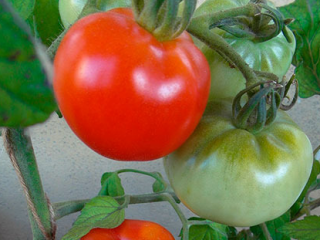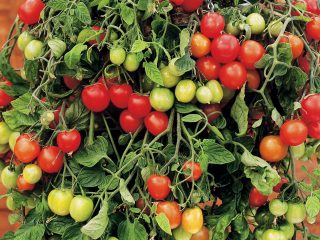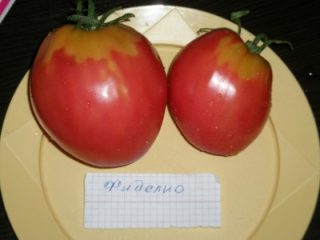Content
Krasnobay tomatoes are a high-yielding hybrid. The variety is grown for fresh consumption or for processing. Since 2008, the variety has been registered in the state register. Krasnobay tomatoes are planted under a glazed or film shelter.
Botanical description
Characteristics and description of the Krasnobay tomato variety:
- mid-late ripening;
- indeterminate standard grade;
- 120-125 days pass from planting to harvest;
- bush height from 1.5 m;
- average leaf sizes;
- the first inflorescence develops over 9-11 leaves.
The fruits of the Krasnobay variety have a number of characteristic features:
- rounded, slightly flattened shape;
- dense smooth skin;
- rich red color;
- weight from 250 to 350 g;
- maximum weight - 500 g;
- dry matter concentration - up to 5.1%.
From 1 sq. m plantings are harvested up to 8 kg of fruits, subject to agricultural technology. Fruits lie for a long time and are suitable for long-term transportation. When picking Krasnobay tomatoes at the stage of technical maturity, they are left at home until cooked.
According to reviews, photos and yield, Krasnobay tomato is suitable for growing in garden plots and farms. Tomatoes are used for fresh consumption, preparation of snacks, salads, soups, sauces, second courses. In home canning, salads, pickles, tomato juice for the winter are obtained from the fruits.
Seedlings of tomatoes
Krasnobay tomatoes are grown in seedlings. First, the seeds are planted at home. Tomatoes develop rapidly when temperature conditions and watering are maintained.
Preparing for landing
For planting Krasnobay tomatoes, a soil is prepared, consisting of garden soil and humus. You can get the necessary substrate by combining peat, sand and sod land in a ratio of 7: 1: 1. It is allowed to use soil sold in gardening stores or peat tablets.
The soil must be treated to get rid of pests and pathogens. It is placed in the oven for 15-20 minutes. Additionally, the soil is watered with a weak solution of potassium permanganate.
If the planting material is covered with a colored shell, then it is immediately planted in the ground. Such a shell contains a complex of nutrients necessary for the germination and development of Krasnobay tomatoes.
The seeds are deepened into moist soil to a depth of 1-1.5 cm. A layer of peat or fertile soil is poured on top. The plantings are covered with glass or foil, and for the next few days they are kept in a warm and dark place.
Seedling conditions
The development of Krasnobay tomato seedlings occurs under certain environmental conditions:
- Temperature. Tomatoes are provided with a temperature regime: 20-25 ° С during the day and 15-18 ° С at night.
- Airing. The room with plants is regularly ventilated. However, tomatoes should not be exposed to drafts.
- Watering. Tomatoes are watered with settled water using a spray bottle after the first leaf appears. When Krasnobay tomatoes form 4-5 sheets, they are watered 2 times a week. It is necessary to monitor the moisture content of the soil, which contributes to the spread of diseases.
- Lighting. Tomatoes should have access to sunlight for 12 hours. If necessary, equip additional lighting and install phytolamps.
2 weeks before the transfer of the Krasnobay variety to a permanent place, they begin to harden the plants. They are taken out onto a balcony or loggia. At first, the residence time of tomatoes in the fresh air will be 2 hours, gradually this period is increased.
Landing in the ground
Tomatoes that have reached a height of 30-40 cm are suitable for transfer to a permanent place. Plants already have 5-7 fully formed leaves and a powerful root system.
The place for planting Krasnobay tomatoes is chosen in the fall. The best precursors for tomatoes are cucumbers, cabbage, carrots, beets, onions, garlic, and legumes. Planting is not performed in the beds where peppers, potatoes, and eggplants grew.
In the greenhouse, the top layer of the soil is removed, in which insects and pathogens hibernate. Bordeaux liquid or potassium permanganate solution is used to disinfect the greenhouse.
Krasnobay tomatoes are transferred along with a clod of earth. Leave 40 cm between the plants.When organizing several rows, make a gap of 60 cm.
The roots of Krasnobay tomatoes are covered with earth, which is slightly compacted. Be sure to water the plants and tie them to the support.
Tomato care
Tomatoes are cared for by watering and fertilizing. According to the description and reviews, Krasnobay tomatoes are formed by removing stepchildren to obtain a high yield. Preventive treatments help prevent the spread of diseases and pests.
Watering plants
Krasnobai tomatoes are watered weekly. Standing water warmed in barrels is suitable for irrigation. Water is brought under the root of plants, preventing it from getting on the leaves and stems.
The intensity of watering depends on the stage of development of the tomatoes. Before the formation of inflorescences, they are watered with 4 liters of water. During the flowering period, tomatoes are watered using 2 liters of water every 3-4 days.
After watering, the soil is loosened. So plants absorb moisture and nutrients better. Mulching the beds with peat or humus helps to maintain a high level of moisture.
Fertilization
Krasnobai tomatoes are fed 3-4 times during the season. There should be 14 days between treatments.
The first application of fertilizers occurs 7-10 days after the transfer of plants to a permanent place. For feeding the Krasnobay variety, a mixture of organic and mineral fertilizers is used. First, a solution is obtained, consisting of mullein and water in a ratio of 1:10. The resulting fertilizer is added 20 g of superphosphate.
When blooming, Krasnobay tomatoes are treated with a solution of boric acid. 2 g of water requires 2 g of the substance. Spraying stimulates the formation of ovaries, improves the palatability of the fruit.
After 2-3 weeks, repeat the phosphorus-potassium dressing. The solution is applied under the root of the plants in the morning or in the evening.
Bush formation
According to its characteristics and description, the Krasnobay tomato variety is tall. The correct formation of tomatoes ensures a high yield and avoids thickening of the plantings. The plant is formed into 1 stem.
Excess inflorescences are removed manually. No more than 5 flowers are left on the brush. At the end of the growing season, pinch the growing point. 7 brushes are left on the bushes.
Protection against diseases and pests
The Krasnobay variety is resistant to fusarium, cladosporium, and tobacco mosaic virus. Viral diseases are the most dangerous for tomatoes because they cannot be treated. Affected bushes are removed, and the tomato planting site is changed.
With high humidity, fungal diseases develop on tomatoes. They are identified by the dark spots that appear on the stems, tops and fruits.
Of the pests, Krasnobay tomatoes attract gall midge, aphids, whitefly, and bear.Insects are fought by spraying plantings with insecticides.
From folk remedies, tobacco dust or wood ash is used, which is sprayed over the beds. Home-made preparations based on soda, onion and garlic peels are effective.
Gardeners reviews
Conclusion
According to the description and reviews, Krasnobay tomatoes are suitable for planting in a greenhouse or in open areas. The variety has a good taste and large fruit size. The variety is resistant to viral diseases. For the prevention of fungal diseases, the rules of agricultural technology are observed.
